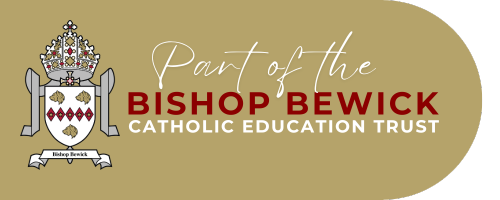
SAFEGUARDING & CHILD PROTECTION
CHILD PROTECTION CONCERNS
If you have any Child Protection concerns, please contact one of the school's Designated Person(s) or the local authority's Designated Person:
Anne Bullerwell (Headteacher)
David Hastie (Chair of Governors)
Lucy Clarke (Deputy Headteacher)
Carolyn Ferguson (Assistant Headteacher)
Melanie Scott (Newcastle Local Authority Designated Officer) Contact: 0191 2116730
CHILD PROTECTION STATEMENT
St Cuthbert’s Catholic Primary School recognises our moral and statutory responsibility to safeguard and promote the welfare of all pupils. We will endeavour to provide a safe and welcoming environment where children are respected and valued. We will be alert to the signs of abuse and maltreatment and will follow our procedures to ensure that children receive effective support, protection and justice.
The procedures contained in this policy apply to all staff and governors and are consistent with those of the Local Safeguarding Children Board.
Core Principles
This statement is one of a series in the school’s integrated safeguarding portfolio. Our core safeguarding principles are as follows.
-
The school’s responsibility to safeguard and promote the welfare of children is of paramount importance.
-
Safer children make more successful learners.
-
Representatives of the whole school community of pupils, parents, staff and governors will be involved in policy development and review.
-
Policies will be reviewed annually, unless an incident or new legislation or guidance suggest the need for an interim review.
The statement and core principles demonstrate the school’s understanding that to carry out its role effectively it must:
-
Give priority to the welfare of the child
-
Understand the importance of respect
-
Recognise the relationship between safety and learning
-
Value the opinions and contributions of the whole school community
-
Ensure staff are appropriately trained
-
Develop and maintain effective procedures
-
Comply with the prevailing legislation and consider prevailing guidance
SAFEGUARDING STATEMENT
At St Cuthbert’s Catholic Primary School we respect and value all children and are committed to providing a caring, friendly and safe environment for all our pupils so they can learn, in a relaxed and secure atmosphere. We believe every pupil should be able to participate in all school activities in an enjoyable and safe environment and be protected from harm. This is the responsibility of every adult employed by, or invited to deliver services at St Cuthbert’s Catholic Primary School. We recognise our responsibility to safeguard all who access school and promote the welfare of all our pupils by protecting them from physical, sexual and emotional abuse, neglect and bullying.
This means that we have a Child Protection Policy and procedures in place which we refer to in our prospectus. All staff (including supply staff, volunteers and governors) must ensure that they are aware of these procedures. Parents and carers are welcome to read the Policy on request. It is also available on our website.
Sometimes we may need to share information and work in partnership with other agencies when there are concerns about a child’s welfare. We will ensure that our concerns about our pupils are discussed with his/her parents/carers first unless we have reason to believe that such a move would be contrary to the child’s welfare.
Our Designated Person(s) are:
-
Anne Bullerwell (Headteacher)
-
David Hastie (Chair of Governors)
-
Lucy Clarke (Deputy Headteacher)
-
Carolyn Ferguson (Assistant Headteacher)
-
Melanie Scott (Newcastle Local Authority Designated Officer) Contact: 0191 2116730
If you are concerned about a child’s welfare, please record your concern, and any observations or conversation heard, and report to one of the Designated Persons as soon as possible the same day. Do NOT conduct your own investigation. Please treat any concerns as confidential.
If your concerns relate to the actions or behaviour of a member of staff (which could suggest that s/he is unsuitable to work with children) then you should report this to one of the Designated Persons in confidence, who will refer the matter to the Head Teacher (or the Chair of Governors if the concern relates to the Head Teacher) – who will consider what action to take.
SAFEGUARDING FOR PARENTS
Our School is committed to Safeguarding and Promoting the Welfare of all of its pupils. Each pupil’s welfare is of paramount importance.
If you have any Safeguarding concerns, please speak to our designated person: Mrs Anne Bullerwell, or the deputy DSLs, Mrs Lucy Clarke, Mrs Carolyn Ferguson or Mrs Lucy Marley.
PREVENT DUTY STATEMENT
Principles
This statement has been developed in accordance with the principles established by the Children's Acts 1989 and 2004; the Education Act 2002, and in line with government publications: ‘Working Together to Safeguard Children’ 2013, Revised Safeguarding Statutory Guidance 2 ‘Framework for the Assessment of Children in Need and their Families’ 2000, ‘What to do if You are Worried a Child is Being Abused’ 2003. The guidance reflects, ‘Keeping Children Safe in Education’ 2014 and our responsibilities with regard to the Prevent Strategy 2011.
Aims
-
To ensure staff are aware of the Prevent Strategy and able to protect children and young people who are vulnerable or at risk of being radicalised
Managing Referrals
-
To refer any child/ren at risk of being radicalised or extremism through the Local Authority Channel Referral and Intervention processes.
Raise Awareness
-
Ensure staff and governors are aware of how to identify and respond to risks to children from extreme or radical views.
Vulnerability to radicalisation or extreme view points
The school recognises its duty to protect our students from indoctrination into any form of extreme ideology which may lead to the harm of self or others. This is particularly important because of the open access to electronic information through the internet. The schools aims to safeguard young people through educating them on the appropriate use of social media and the dangers of downloading and sharing inappropriate material which is illegal under the Counter-Terrorism Act. The school vets all visitors carefully and will take firm action if any individual or group is perceived to be attempting to influence members of our school community, either physically or electronically. Our definition of radical or extreme ideology is ‘a set of ideas which could justify vilification or violence against individuals, groups or self.’ Staff are trained to be vigilant for spotting signs of extremist view and behaviours and to always report anything which may suggest a student is expressing opinions which may cause concern. Our core mission of diversity permeates all we do. We place a strong emphasis on the common values that all communities share such as self-respect, tolerance and the sanctity of life. We work hard to broaden our students' experience, to prepare them for life and work in contemporary Britain. We teach them to respect and value the diversity around them as well as understanding how to make safe, well-considered decisions.
OPERATION ENCOMPASS
St Cuthbert's is an Operation Encompass School which means we are notified by Northumbria Police if any of our families or children are involved in any domestic violence situations. For more information, please see the document below. This enables the staff in school to support the children involved. As an OE school, we have access to a School Safeguarding Liaison Officer who specialises in supporting and advising families with domestic abuse issues or conflict in the family home.
BEHAVIOUR STATEMENT
GOVERNORS’ STATEMENT OF BEHAVIOUR PRINCIPLES
Rationale and Purpose
This Statement has been drawn up in accordance with the Education and Inspections Act 2006, and Department for Education (DfE) guidance and the school’s Behaviour Management Policy. The purpose of this statement is to provide guidance for the Headteacher in drawing up the Behaviour and Discipline Policy at St Cuthbert’s catholic Primary School so that it reflects the shared aspirations and beliefs of governors, staff and parents for the children in the school, as well as taking full account of law and guidance on behaviour matters. It is intended to help all school staff to be aware of and understand the extent of their powers in respect of discipline and sanctions and how to use them. Staff should be confident that they have the Governor’s support when following this guidance. This is a statement of principles, not practice: it is the responsibility of the Headteacher to draw up the Behaviour and Discipline Policy at St Cuthbert’s, though they must take account of these principles when formulating this. The Headteacher is also asked to take account of the guidance in DfE publication Behaviour and Discipline in Schools: a guide for Headteachers and School Staff (January 2016).
Principles
-
Every child has the right to learn but no child has the right to disrupt the learning of others.
-
Everyone has a right to be listened to, to be valued, to feel and be safe.
-
Everyone must be protected from disruption or abuse.
-
St Cuthbert’s is an inclusive school; all members of the school community should be free from discrimination, harassment, victimisation and any other conduct that is prohibited by or under the Equality Act 2010.
-
It is expected that all adults – staff, volunteers and governors – will set excellent examples to the children at all times.
-
We seek to give every child a sense of personal responsibility for his/her own actions.
-
The school’s Behaviour and Discipline Policy will ensure that there are measures to encourage good behaviour, self-discipline and respect, and prevent all forms of bullying amongst pupils; it also provides guidance on use of reasonable force. Where there are significant concerns over a pupil’s behaviour, the school will work with parents to strive for common strategies between home and school.
-
The school will seek advice and support from appropriate outside agencies where concerns arise over a child’s behaviour.
-
The school’s Behaviour and Discipline Policy will clearly reflect the school’s approach to exclusions.
-
The school’s Behaviour and Discipline Policy will set out the disciplinary action that will be taken against pupils who are found to have made malicious accusations against school staff.
-
The school will fulfil its’ legal duties under the Equality Act 2010 in respect of safeguarding, children with special educational needs and all vulnerable children.
-
The school will keep abreast of current issues and initiatives with regard to Health and Safety at Work Act 1974 and related regulations.


